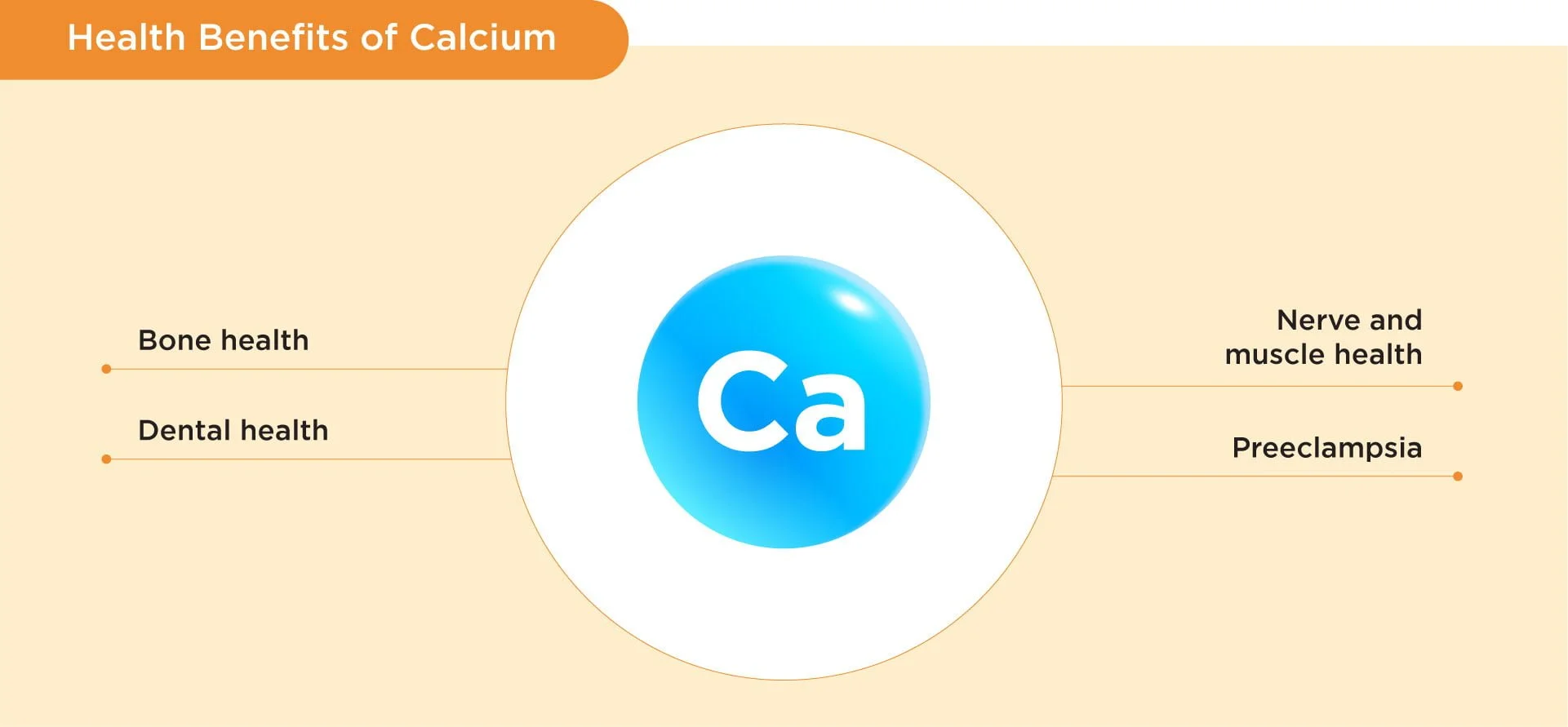Calcium

Calcium
Calcium is an important mineral that is needed by all living organisms, including humans. More than 99% of the calcium in the human body is stored in the bones and teeth 1. Our body will lose its calcium everyday through the skin, nails, hair, sweat, and urine 2. When the body doesn’t get enough calcium to support its function, it will get from the bones. Thus causing bone loss over time, putting the individual at risk of bone disease. Therefore, it is important to get enough calcium through diet or dietary supplement as the body can’t make its own calcium 2. Calcium-rich foods include dairy products, dark green vegetables, soy products, calcium-fortified cereals and others.
Myths and Facts
A common misconception about calcium is that cutting down calcium intake will reduce the chances of getting kidney stones. Calcium is often regarded as the main contributor to kidney stones due to its presence in calcium oxalate type stones. The answer is NO, calcium is not the enemy. In fact, calcium intake lower than the recommendation can be bad for bone health and may increase kidney stone risk 3.
Published Health Benefits
1. Bone health
- Calcium provides critical support for bone metabolism and is essential for maintaining optimal bone mass 4. Supplementing with calcium has shown to reduce the risk of fractures among older adults 5.
- Experts also recommend that women at their menopause stage take calcium supplements to help prevent osteoporosis 2. During menopause, estrogen levels decline causing rapid decrease in bone mass, thus increasing the risk of developing osteoporosis 6.
2. Dental health
- Strong teeth are also dependent on calcium. Consuming not enough of calcium can cause bones throughout the body (including the teeth) to become less dense and more fragile, which could lead to tooth loss. Supplementing with calcium and vitamin D have a beneficial effect on tooth retention 12.
3. Nerve and muscle health
- Calcium ions are important in transmitting nerve impulses to the muscle 7. When nerves stimulate muscles, calcium is released to help the muscle fibers to contract. In the absence of calcium, the muscle fibers will return to their original position and relax 8. Disruption of calcium homeostasis can disturb the normal muscle function and nerve signaling.
4. Preeclampsia
- Experts have recommended an intake of 1500-2000mg calcium to reduce the severity of preeclampsia in pregnant women who have inadequate calcium intake 9,10.
Recommended daily dose
Healthy adults need at least 800mg of calcium per day. Without dairy products, an individual is still able to get 300mg of calcium daily from a balanced diet. Hence, supplementation of 500mg calcium can help achieve daily calcium requirement 11.
References:
1. Office of Dietary Supplements – Calcium. (2021). Retrieved 1 October 2021, from https://ods.od.nih.gov/factsheets/Calcium-HealthProfessional/#en1
2. Calcium/Vitamin D Requirements, Recommended Foods & Supplements. (2021). Retrieved 1 October 2021, from https://www.nof.org/patients/treatment/calciumvitamin-d/
3. 6 Easy Ways to Prevent Kidney Stones. (2020). Retrieved 20 October 2021, from https://www.kidney.org/atoz/content/kidneystones_prevent
4. Newman, T. (2020). Calcium: Health benefits, foods, and deficiency. Retrieved 1 October 2021, from https://www.medicalnewstoday.com/articles/248958#_noHeaderPrefixedConten
5. Weaver, C. M., Alexander, D. D., Boushey, C. J., Dawson-Hughes, B., Lappe, J. M., LeBoff, M. S., Liu, S., Looker, A. C., Wallace, T. C., & Wang, D. D. (2016). Calcium plus vitamin D supplementation and risk of fractures: an updated meta-analysis from the National Osteoporosis Foundation. Osteoporosis international : a journal established as result of cooperation between the European Foundation for Osteoporosis and the National Osteoporosis Foundation of the USA, 27(1), 367–376. doi: 10.1007/s00198-015-3386-5
6. Song L. (2017). Calcium and Bone Metabolism Indices. Advances in clinical chemistry, 82, 1–46. doi: 10.1016/bs.acc.2017.06.005
7. Insel, P., Ross, D., Bernstein, M., & Mcmahon, K. (2011). Nutrition (4th ed.). Sudbury, Mass.: Jones and Bartlett Publishers.
8. Powers, S., & Howley, E. (2012). Exercise physiology (8th ed.). New York: McGraw-Hill Higher Education.
9. Hypertension in pregnancy. Report of the American College of Obstetricians and Gynecologists’ Task Force on Hypertension in Pregnancy. (2013). Obstetrics and gynecology, 122(5), 1122–1131. doi: 10.1097/01.AOG.0000437382.03963.88
10. WHO recommendation: Calcium supplementation during pregnancy for the prevention of pre-eclampsia and its complications. (2018). World Health Organization.
11. How much calcium do you really need? – Harvard Health. (2019). Retrieved 20 October 2021, from https://www.health.harvard.edu/staying-healthy/how-much-calcium-do-you-really-need
12. Krall, E. A., Wehler, C., Garcia, R. I., Harris, S. S., & Dawson-Hughes, B. (2001). Calcium and vitamin D supplements reduce tooth loss in the elderly. The American journal of medicine, 111(6), 452–456. https://doi.org/10.1016/s0002-9343(01)00899-3









